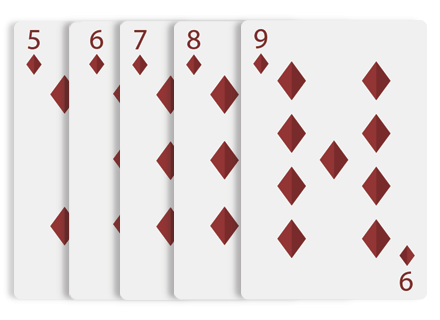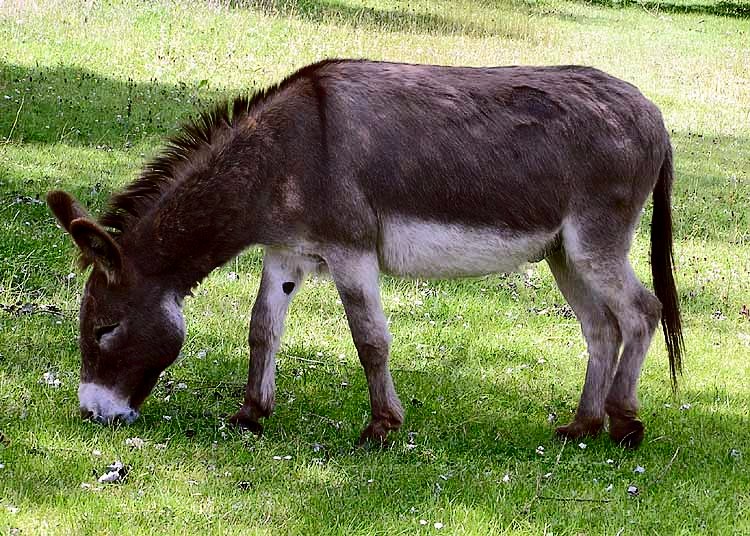Back-to-back straight flushes! For information, these hands are somewhat disparate from my archives. I note them as I play 'em & post 'em at a later date. In other words, I don't think this hand occurred coinciding with the prior post. I'm sure it seems like I run like a maniac!
Anyway, 0.25/0.50. Folds around to the player on my right who opens for $1.50 (it's a normal raise). I look down at AdQd - pretty automatic 3bet to my standard (and admittedly LARGE, but I get a TON of calls) $5.25.
SIDEBAR ON BET SIZING: My opinion is go as large as you can if you're getting opponents to call it. If your 3bets are severely weighted towards value, bigger is better. I'm polarized when I 3bet. I estimate I'm around 80/20 value. Against opponents with higher PFRs - and on this site, they're VERY easy to see - I adjust my value/bluff percentages and adjust my definition of value. In other words, KQ may be a bluff hand to some opens (and a bad bluff because very often, it's a dominated hand to some tighter players), it's a value hand to higher PFR players. I can also use 75s, or other suited gappers to 3bet as a bluff; they're easy to continue / fold post flop. Anyway - rabbit holes...
My 3bet folds everyone out to my heads-up opponent who calls.
$11.25 and flop is Kd7h2s. My 3bet hands are very weighted towards Kx hands - mainly AK - and that's the common assumption of the majority of my opponent. This assumption makes my cbet somewhat mandatory, though I've been playing with flop checking my top pair hands for deception. In this case, though, I'd prefer to take the hand down without a fight: My stubborn opponent checks to me & I cbet half pot: $6.25. Stubborn dude continues to be stubborn and calls.
$23.75 and at this point, only an A will get me to continue with the hand. My opponent has called me twice & clearly believes he has me beat. Turn is Jd and though this card improves my draws DRASTICALLY, I feel like I'm getting too close to very narrow stack-to-pot (SPR) ratios that my opponent will feel compelled to ship it if I bet here. I don't love that prospect even though I have enough equity to call. Quick math is as follows: I have 9 flush outs + 4 Ten outs + a possible 3 Aces and 3 possible Queens (which I can questionably discount a bit, since hitting my Ace may give my opponent 2 pair, and hitting a Queen may be futile against his possible pair of Kings) gives me a total 13 + ~2 outs (15) with one card to come gives me (15 x 1 card x 2 percentage multiplier) 30% equity. My opponent checks to me & I opt to check behind.
$23.75 in the middle and I river the stone cold goods: Td. Final board is Kd7h2sJdTd and I hold a very hidden backdoored straight flush. To my delight, my opponent leads for roughly 2/3 pot making my shove a very easy shove. He leads $17.50 with $18.22 behind. I essentially double it, $37.50 and he snap calls for the rivered set and bad news: TcTh. Exactly two timed. Not sure I like how he played the hand, but got unlucky on the end for sure!
If you sign up for ClubsPoker, you can view the hand rather than relying on my mediocre retelling. Use the referral link provided if you're able to do so.
The hand in question is linked here.












